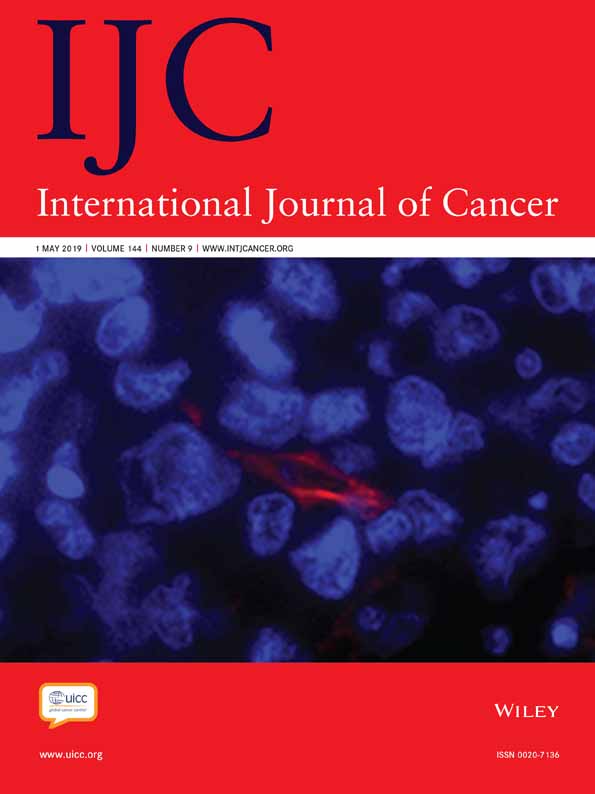Effectiveness and safety of reduced-dose fluoropyrimidine therapy in patients carrying the DPYD*2A variant: A matched pair analysis
Abstract
Carriers of the genetic DPYD*2A variant, resulting in dihydropyrimidine dehydrogenase deficiency, are at significantly increased risk of developing severe fluoropyrimidine-associated toxicity. Upfront DPYD*2A genotype-based dose reductions improve patient safety, but uncertainty exists whether this has a negative impact on treatment effectiveness. Therefore, our study investigated effectiveness and safety of DPYD*2A genotype-guided dosing. A cohort of 40 prospectively identified heterozygous DPYD*2A carriers, treated with a ~50% reduced fluoropyrimidine dose, was identified. For effectiveness analysis, a matched pair-analysis was performed in which for each DPYD*2A carrier a matched DPYD*2A wild-type patient was identified. Overall survival and progression-free survival were compared between the matched groups. The frequency of severe (grade ≥ 3) treatment-related toxicity was compared to 1] a cohort of 1606 wild-type patients treated with full dose and 2] a cohort of historical controls derived from literature, i.e. 86 DPYD*2A variant carriers who received a full fluoropyrimidine dose. For 37 out of 40 DPYD*2A carriers, a matched control could be identified. Compared to matched controls, reduced doses did not negatively affect overall survival (median 27 months versus 24 months, p = 0.47) nor progression-free survival (median 14 months versus 10 months, p = 0.54). Risk of severe fluoropyrimidine-related toxicity in DPYD*2A carriers treated with reduced dose was 18%, comparable to wild-type patients (23%, p = 0.57) and significantly lower than the risk of 77% in DPYD*2A carriers treated with full dose (p < 0.001). Our study is the first to show that DPYD*2A genotype-guided dosing appears to have no negative effect on effectiveness of fluoropyrimidine-based chemotherapy, while resulting in significantly improved patient safety.
Abstract
What's new?
Genetic variants in the dihydropyrimidine dehydrogenase gene (DPYD) enhance toxicity associated with fluoropyrimidine-based chemotherapies and a 50% reduction in drug dosing in affected carriers. Here the authors addressed the fear of “underdosing” by retrospectively matching cancer patients with mutant or wild-type DPYD status. No significant difference was seen in overall survival, progression-free survival or disease control between the two groups affirming current clinical guidelines.




